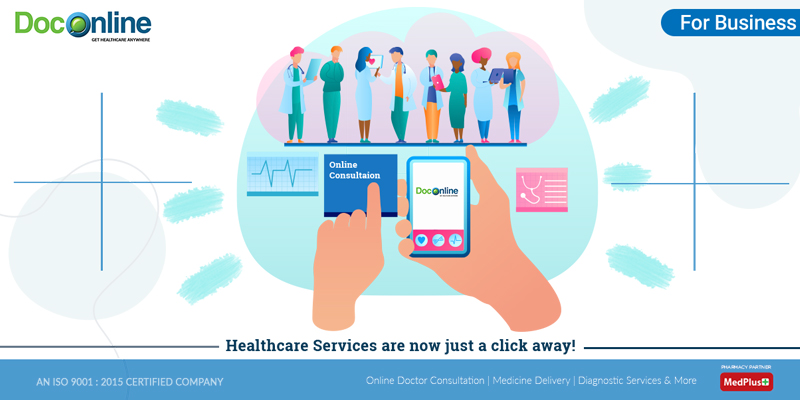The Future of Medicine: Discovering Subscription Based Healthcare Models
The Future of Medicine: Discovering Subscription Based Healthcare Models
Blog Article
Exactly How Subscription-Based Health Care Is Changing the Clinical Market

The Surge of Registration Healthcare
Recently, the health care industry has actually experienced a substantial shift towards subscription-based designs, showing wider consumer fads favoring convenience and predictability. This change is driven by the increasing need for more individualized and accessible care services. Registration healthcare, in some cases referred to as attendant medicine or direct medical care, supplies people a fixed month-to-month cost for a variety of clinical services, considerably modifying traditional fee-for-service designs.
The rise of membership medical care is helped with by developments in modern technology, which allow streamlined communication in between clients and service providers - subscription based healthcare. Digital platforms and telehealth services have ended up being important, using individuals the capability to arrange appointments, gain access to clinical documents, and receive consultations online. This technological combination not only improves individual engagement yet also permits suppliers to deliver much more efficient treatment
In addition, the membership version aligns with the advancing expectations of individuals who look for even more control over their healthcare costs and experiences. By removing the unpredictability of co-pays and insurance coverage claims, subscription-based health care provides a uncomplicated and transparent technique. While this design is gaining grip, its proliferation faces difficulties such as regulative difficulties and the requirement for wider acceptance within the conventional healthcare environment. However, its expanding visibility notes an essential minute in the evolution of health care delivery.
Advantages for Individuals and Suppliers
Subscription-based healthcare offers a wide range of benefits for both clients and suppliers, improving the characteristics of clinical treatment. For patients, this model offers boosted access to medical care services.
For health care suppliers, subscription-based designs promote an even more satisfying and sustainable technique. Management jobs are commonly streamlined, decreasing overhanging expenses and permitting service providers to devote even more time to person interaction. Overall, subscription-based health care straightens the motivations of service providers and individuals, advertising a much more efficient and patient-centered medical care distribution system.
Secret Attributes of the Model
Frequently, the key functions of the subscription-based healthcare design highlight its distinctive approach to providing medical services. Central to this model is the principle of foreseeable, regular monthly settlements, offering individuals a thorough array of solutions without the changability of typical fee-for-service structures. This design commonly consists of unrestricted access to main treatment services, preventative care, and regular check-ups, guaranteeing that people can involve with their healthcare companies proactively as opposed to reactively.
Furthermore, straight communication channels, such as telemedicine and messaging platforms, are highlighted, enabling individuals to receive prompt guidance and examinations without needing in-person appointments. This boosts accessibility and convenience, specifically for individuals with flexibility restrictions or those residing in remote areas. The model likewise fosters more powerful doctor-patient partnerships, as healthcare suppliers are incentivized to concentrate on long-lasting health and wellness end results instead of short-term gos to.
Furthermore, subscription-based medical care frequently integrates technical innovations, look at here now such as digital health documents and wellness surveillance applications, to offer effective and tailored care. People benefit from coordinated and continual treatment management, which is tailored to their particular health and wellness demands. Inevitably, these functions jointly develop a patient-centered medical care experience, prioritizing availability, cost transparency, and preventive care.

Difficulties and Considerations
While the subscription-based healthcare model offers numerous benefits, it is not without its considerations and obstacles. One considerable challenge find here is guaranteeing fair gain access to. Registration versions may inadvertently prefer those with greater socioeconomic standing, possibly broadening differences in healthcare access for lower-income people that may deal with month-to-month charges. This raises moral problems about inclusivity and equity in health care delivery.
One more challenge depends on regulative compliance. Subscription-based medical care must browse an intricate web of regulations that vary by area, consisting of concerns around individual confidentiality, information defense, and state licensing demands. Ensuring conformity without impeding the design's flexibility and technology can be intimidating for companies.
In addition, there is the risk of overutilization or underutilization of solutions. Individuals paying a taken care of cost may overuse services, leading to raised functional expenses, while others could underutilize as a result of fear of burdening the system, potentially overlooking required treatment.
Future Leads and Innovations
The landscape of subscription-based medical care is positioned for change through have a peek at this website arising technologies and developing leads. As modern technology continues to development, the integration of expert system and artificial intelligence presents substantial opportunities to enhance diagnostic accuracy and enhance patient management. Predictive analytics can reinvent preventive care by determining prospective health and wellness risks prior to they materialize, therefore decreasing both prices and the burden on medical care systems.
Moreover, telemedicine is established to increase within subscription models, offering people increased access to healthcare specialists no matter geographical constraints. This not only promotes continuity of care yet likewise encourages patients to engage more actively in their health monitoring. In addition, blockchain technology uses potential in protecting person information and ensuring interoperability throughout platforms, promoting trust and openness.
The development of personalized medicine is another frontier, with subscription designs offering a special structure for supplying customized health remedies. Hereditary screening and individualized treatment strategies can be effortlessly integrated, straightening individual needs with certain clinical interventions. Collaborations between tech business and healthcare suppliers are most likely to generate innovative remedies, improving individual experiences and results. As these prospects emerge, subscription-based health care has the possible to redefine just how treatment is delivered and accessed.
Final Thought
Subscription-based healthcare is transforming the medical industry by supplying a much more obtainable, foreseeable, and patient-centered technique to medical solutions. In spite of difficulties such as regulative obstacles and possible disparities in access, the registration version holds guarantee for an extra tailored and effective health care experience.
Registration health care, often referred to as attendant medication or straight key treatment, uses individuals a fixed month-to-month charge for a variety of clinical services, substantially altering typical fee-for-service versions.
Moreover, the registration design lines up with the advancing assumptions of individuals that look for even more control over their healthcare expenditures and experiences. For clients, this design supplies improved accessibility to health care solutions. On the whole, subscription-based medical care lines up the motivations of companies and patients, advertising an extra efficient and patient-centered health care delivery system.
Additionally, telemedicine is set to increase within registration versions, offering clients boosted accessibility to medical care specialists no matter of geographical restrictions. - subscription based healthcare
Report this page